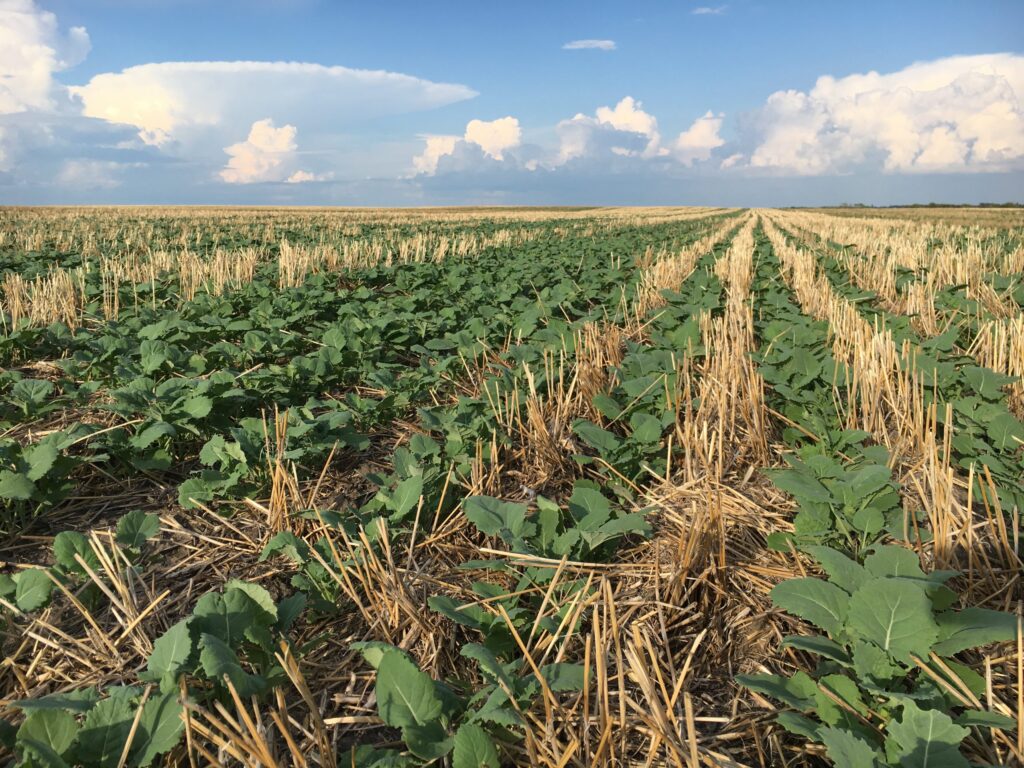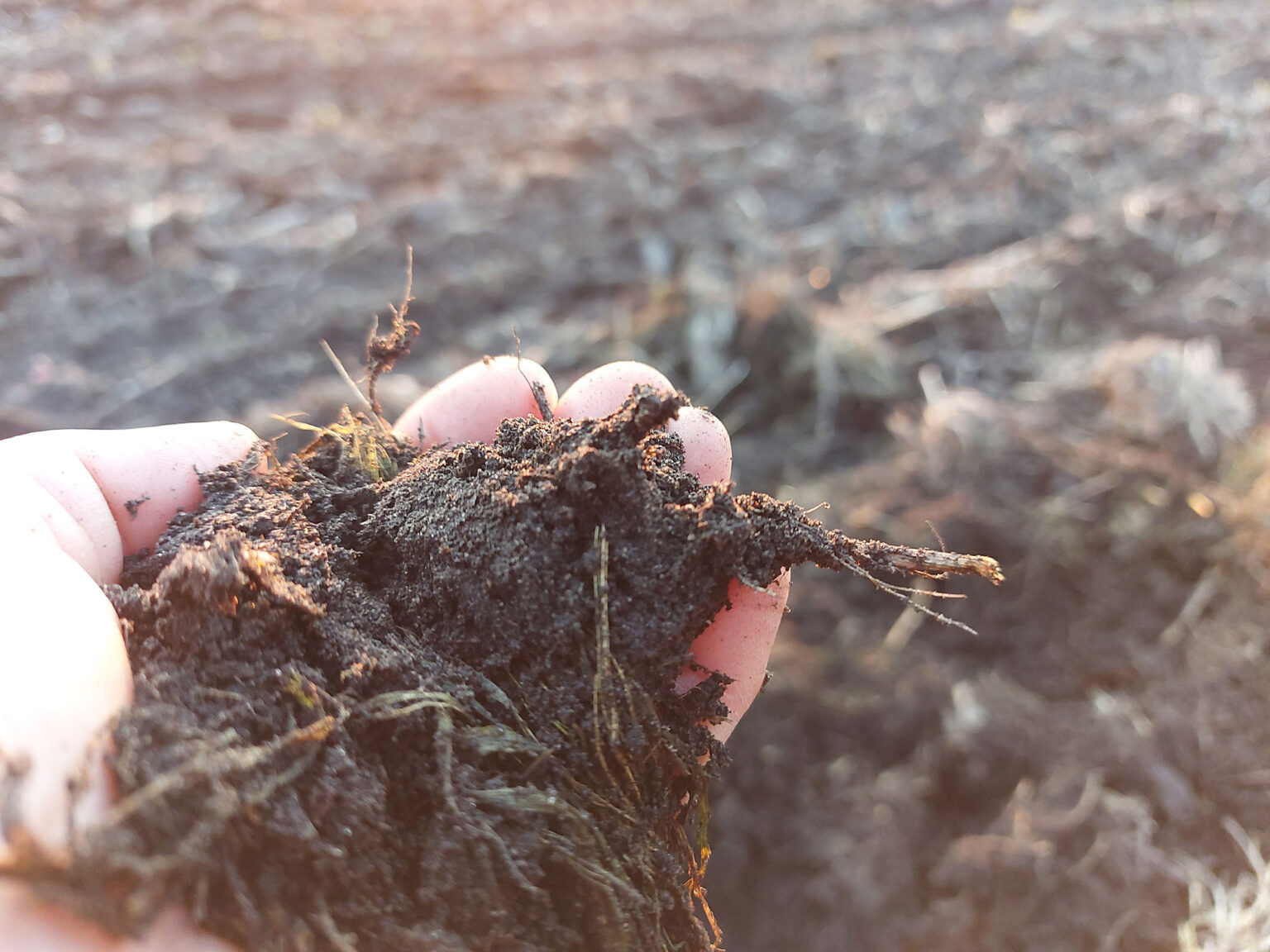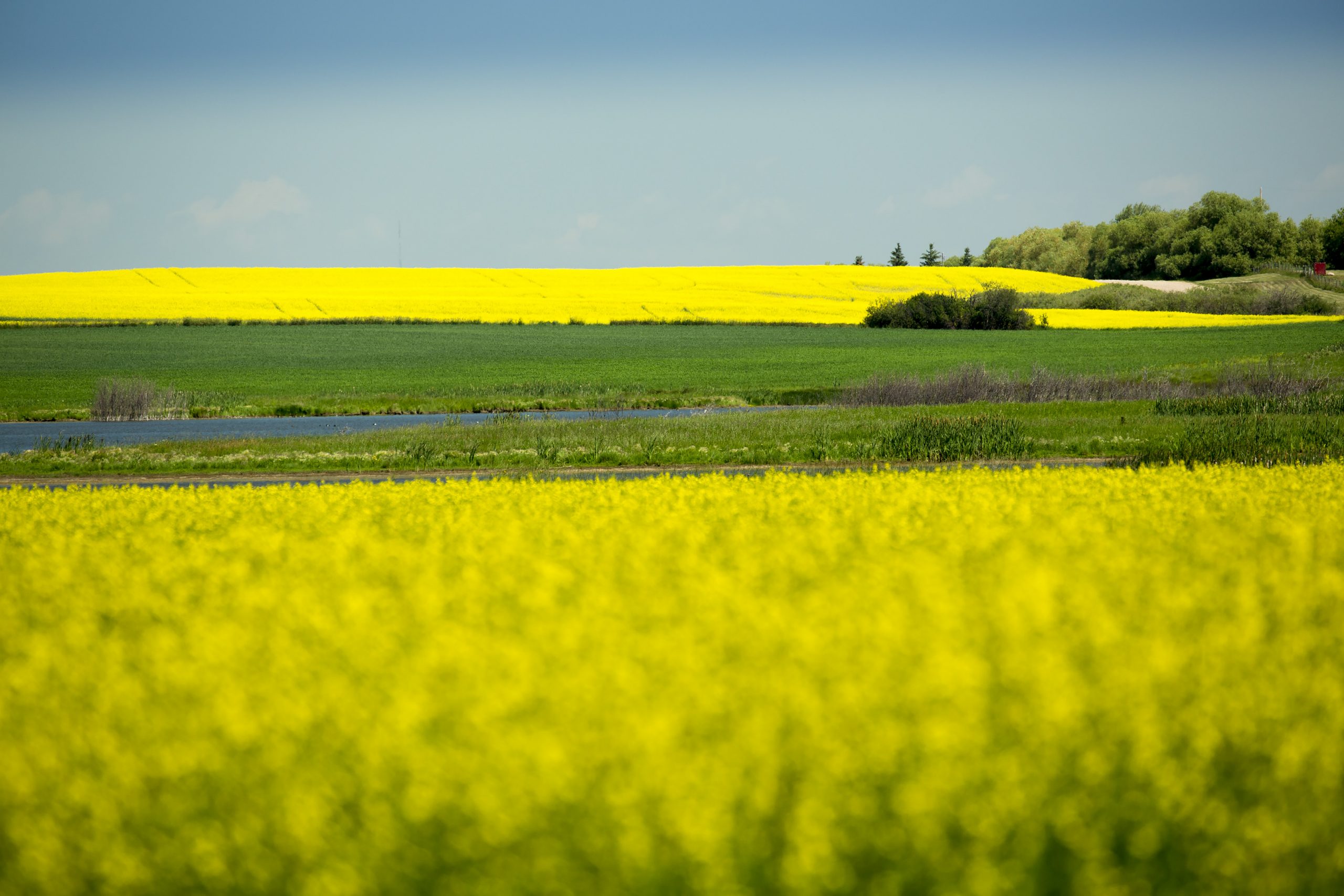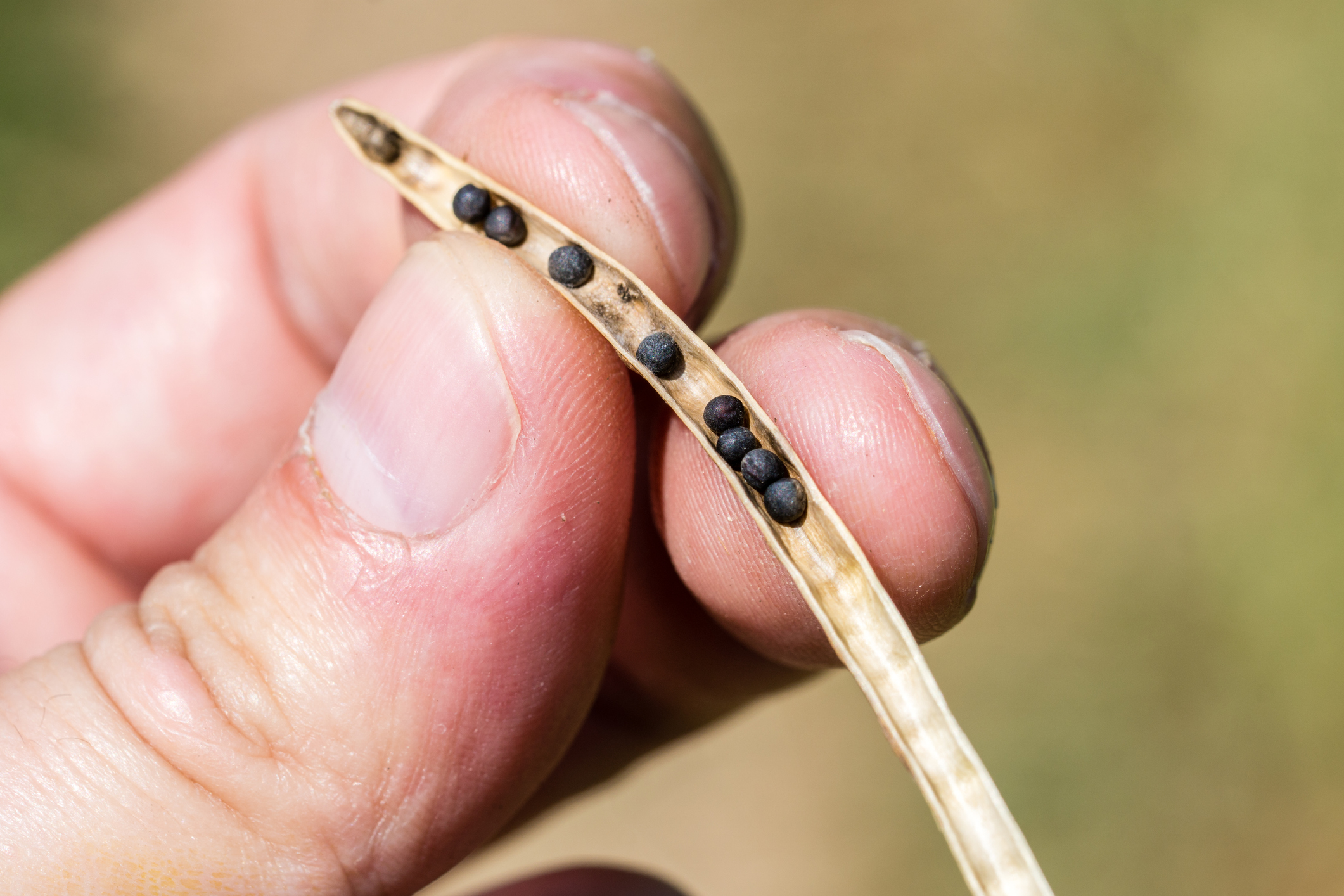
Reducing Energy Use with Less Tilling
Tilling is the process of turning and loosening the soil to control for weeds and pests, and has long been used as a traditional part of farming.
Less tilling means farmers make fewer passes over the field with tractors and tillage implements, reducing fuel and GHG emissions, and improving soil and water health.
Conservation tillage practices have reduced diesel fuel used on Canadian farms by 125 to 194 million litres annually1.
Where we’re headed
Use less energy
Reducing energy use while improving yields.
In addition to conservation tilling, our commitment to boosting yields and using land more efficiently will also mean farmers are using less energy to produce each bushel of canola.
Reducing Energy Use with Less Tilling
Canola innovations, such as pod shatter tolerant seeds, offer even more fuel savings per bushel.
Because canola seed pods tend to shatter as they ripen, causing seeds to be lost on the ground, farmers have traditionally cut their crop into swaths prior to maturity before harvesting them with the combine.
Using canola pods that are less likely to shatter prior to harvesting allows farmers to eliminate the swathing step and instead let the crop ripen as it stands in the field and straight combine the crop.
This saves fuel and can increase yields as more seeds reach maturity and end up in the combine instead of being lost on the ground.
Reducing Energy Use with Innovation
Canola innovations, such as pod shatter tolerant seeds, offer even more fuel savings per bushel.
Because canola seed pods tend to shatter as they ripen, causing seeds to be lost on the ground, farmers have traditionally cut their crop into swaths prior to maturity before harvesting them with the combine.
Using canola pods that are less likely to shatter prior to harvesting allows farmers to eliminate the swathing step and instead let the crop ripen as it stands in the field and straight combine the crop.
This saves fuel and can increase yields as more seeds reach maturity and end up in the combine instead of being lost on the ground.




